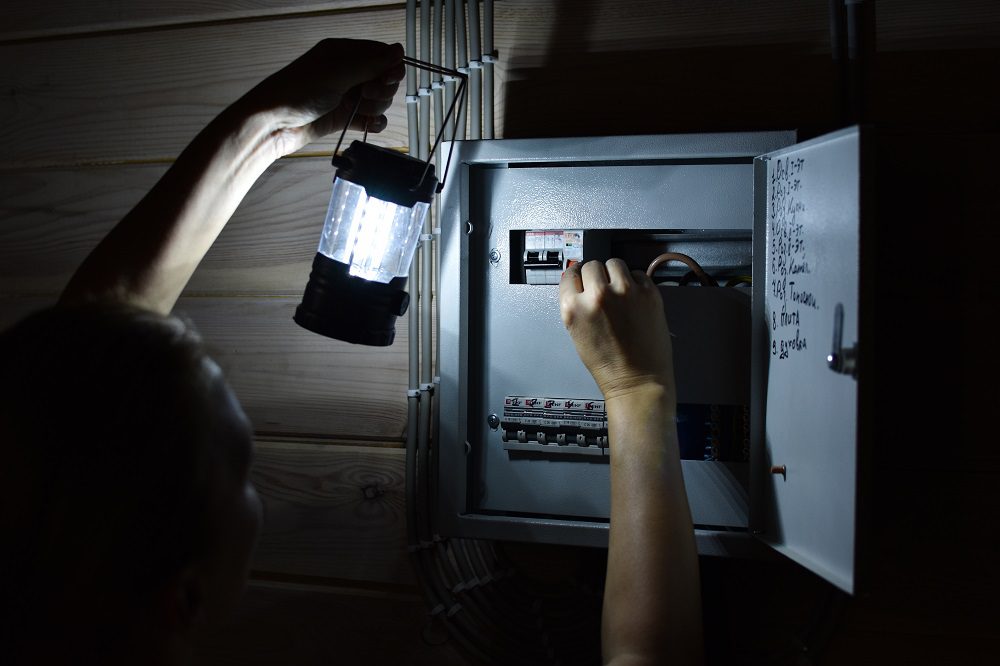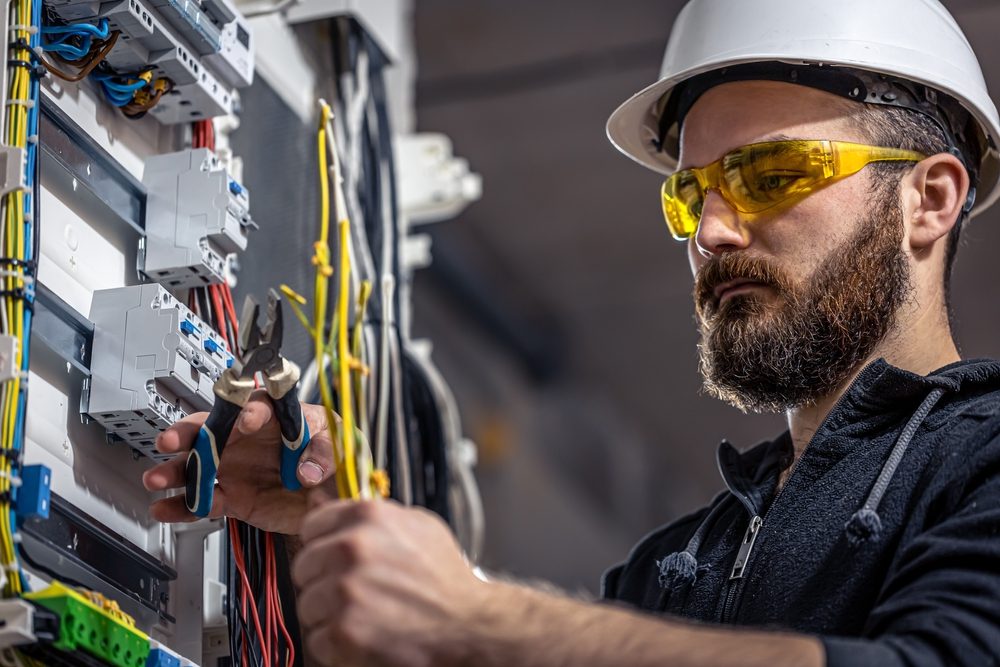Homeowners call about price before anything else. That makes sense. Electrical issues show up without warning, and no one wants surprises on the invoice. This breakdown explains what drives pricing for an electrical repair service in Charlotte, NC, how service call fees work, when a licensed electrician matters more than a handyman, and what to expect for common fixes like outlet replacements. It is written for real decisions on real homes in neighborhoods such as South End, Ballantyne, Plaza Midwood, NoDa, Dilworth, Lake Wylie, and Steele Creek.

What a service call fee covers in Charlotte
Most reputable companies charge a service call fee to roll a truck, arrive on site, diagnose the issue, and provide a written estimate. In Charlotte, this fee often ranges from $79 to $149 during regular hours. The rate reflects fuel, scheduling, liability, licensing, and the time a licensed professional spends troubleshooting. If the repair proceeds, many companies apply part of that fee to the work. Some waive it for same-day approved repairs, especially for quick fixes like a loose connection at a switch.
Even a small problem needs diagnostic time. A dead outlet in a SouthPark condo could be a tripped GFCI upstream, a failing backstabbed connection, or a partial breaker failure. Finding the root cause safely is the value of the initial visit.
Hourly rates vs. flat pricing
Electricians in the Charlotte area commonly charge $95 to $165 per hour for labor, with higher rates for after-hours and emergency calls. Flat pricing is also common for defined tasks. For example, replacing a standard 15-amp receptacle can be a flat price, while troubleshooting a mystery short in a 1970s ranch near Myers Park might be hourly because the path to the fix is uncertain.
For homeowners who want certainty, flat pricing for defined scopes works well. If the problem requires tracing a circuit through multiple junction boxes, hourly billing can be fairer to both sides. Good contractors explain the approach before work begins.

Electrician or handyman: when expertise pays
A handyman can handle simple, non-diagnostic tasks like replacing a light fixture on an existing, properly grounded box or swapping a like-for-like switch. Costs may be lower up front. The risk is hidden faults. If a neutral is shared on a multi-wire branch circuit, or a metal box needs bonding, a surface-level swap could mask a hazard.
Licensed electricians carry specialized testing tools and training. They read load calculations, identify aluminum branch wiring, correct reversed polarity, and bring repairs up to current code. In older Charlotte homes with cloth-sheathed cable, plaster walls, and surprise junctions in ceiling cavities, that expertise matters. Home insurers and home inspectors look for licensed work, especially after an incident or during a sale.
A practical rule: if the job involves troubleshooting, the panel, GFCI/AFCI protection, new wiring, or kitchens, bathrooms, garages, or outdoors, hire a licensed electrician.
What outlet replacement really costs
Basic outlet swaps are often straightforward, but the details change the price. A standard 15-amp, three-prong receptacle in good condition with proper grounding may run $95 to $175 per device when performed during a scheduled visit with multiple devices in the same space. A single, one-off outlet with difficult access or plaster repair can sit higher. The cost includes the device, connectors, testing, and safe termination.
GFCI outlets cost more because the device is more expensive and the technician must confirm correct line/load wiring. Expect $145 to $250 per GFCI, depending on location and whether downstream protection feeds other outlets. Replacing a bathroom GFCI in a Dilworth bungalow can include correcting shared loads or adding labels for downstream receptacles. Outdoor GFCIs with in-use covers also add material cost.
Upgrades to tamper-resistant or weather-resistant devices, heavier-duty 20-amp receptacles, or installing a new circuit to serve a garage freezer or workshop add time and material. If the home has aluminum branch wiring, the electrician may use CO/ALR devices or AlumiConn connectors. That increases cost but addresses a known fire risk. These details separate a cheap swap from a safe repair.

Real factors that change the invoice
Homes across Charlotte vary widely. Costs reflect those differences more than a single price tag suggests.
- Access and finish: Plaster and lath in older homes slow device swaps and require careful handling. Brick, stone, and tiled backsplashes take extra time to remove or reinstall covers. Panel condition: A crowded or obsolete panel (for example, certain Zinsco or Federal Pacific models) complicates even small repairs. Any work may need breakers updated, AFCI/GFCI solutions added, or the panel replaced in phases. Code requirements: Kitchens, bathrooms, laundry rooms, garages, and outdoors now require GFCI or AFCI protection per current code. Bringing one part up to standard sometimes reveals other gaps that should be corrected for safety. Age of wiring: Knob-and-tube, aluminum branch wiring, or ungrounded two-wire circuits change both material and labor needs. These systems can be safe when handled correctly, but shortcuts are not an option. Load concerns: Adding a space heater outlet on an already loaded circuit invites nuisance trips. A load check may lead to a new dedicated circuit instead of a swap.
What to expect during an electrical repair service visit
A solid visit follows a simple rhythm: listen, inspect, test, explain, and fix. The electrician will start at the symptom, test the device, and then move upstream to the panel or nearest junction if needed. In a typical outlet call, the technician checks breaker torque, neutral and ground continuity, and GFCI/AFCI function. The tech documents findings and explains options with priced scopes before work proceeds.
After the repair, the electrician tests again under load. For multi-outlet issues, they verify that downstream devices work and are correctly labeled. Before leaving, they review any deferred items such as loose terminations in the panel or missing bonding at the water line so the homeowner has a clear plan.
Example price ranges seen around Charlotte
These are realistic ranges for common homeowner calls during regular hours. Actual pricing depends on the factors above.
- Service call and diagnostic: $79 to $149, often credited if work proceeds. Replace standard receptacle, same location: $95 to $175 each, lower per-unit pricing when bundled. Replace GFCI receptacle: $145 to $250 each, including testing line/load and labeling. Troubleshoot dead circuit: $150 to $350 for the first hour or two, then hourly if the issue spans multiple junctions. Install new dedicated 20-amp circuit for a garage freezer or shop outlet: $450 to $1,100 depending on panel location, run length, and finish work.
These figures assume code-compliant materials and licensed labor in Charlotte, not handyman rates and not emergency surcharges.
Why cheapest is not the least expensive
A low quote often skips diagnostics or uses backstabs instead of screw terminations. It may ignore GFCI protection where required or reuse worn devices. Those shortcuts tend to fail under load. The repair happens twice, and the second visit costs more. Correct work includes torqueing terminations, verifying polarity, and documenting panel spaces and breaker types. A well-done repair should last.
There is also insurance to consider. If a handyman swaps a receptacle and a fire occurs, the insurer may ask for permits or proof of licensed work. This is common during claims or pre-closing inspections in neighborhoods with high turnover like South End and University City.
How Charlotte homeowners can keep repair costs reasonable
Small checks prevent big calls. Test GFCI outlets monthly by pressing test and reset. Avoid space heaters and hair dryers on the same circuit. Replace cracked or heat-discolored receptacles early. Keep panel areas clear, with three feet of workspace. If lights dim when a microwave starts, note the locations and share that pattern with the technician. Good notes shorten diagnostic time.
If planning multiple fixes, group them. Replacing six worn outlets and two GFCIs during one visit reduces per-device pricing. Ask for pricing on add-ons while the truck is already in the driveway.
What sets a quality electrical repair service apart
A reliable provider communicates clearly, shows up with stocked parts, and leaves the work area clean. They carry the right meters, torque screwdrivers, and GFCI/AFCI testers. They use copper pigtails where needed, avoid backstabs, and install proper in-use covers outdoors. They provide options rather than a single take-it-or-leave-it price, and they put safety first even when that means advising a panel upgrade before adding new loads.
Ewing Electric Co serves Charlotte and nearby areas with licensed, insured technicians who handle small repairs and larger fixes with the same attention. The team explains what failed, why it failed, and what solves it for good. Homeowners get clear pricing for each scope so decisions are simple.
Ready for pricing clarity in your neighborhood
If a kitchen GFCI keeps tripping in Plaza Midwood, a bedroom outlet feels warm in Ballantyne, or an outdoor receptacle failed after a storm near Lake Norman, the team can help. Call Ewing Electric Co to schedule a same-day electrical repair Charlotte NC electrical repair service in Charlotte, NC. Describe the symptom, the room, and any recent changes such as new appliances. A technician will arrive with the parts and test equipment to diagnose, repair, and document the fix.
Prefer to plan ahead? Ask for a short safety review during the visit. Many homeowners pair a repair with quick wins like correcting reversed polarity, replacing brittle devices, or adding arc-fault protection where appropriate. That approach keeps costs predictable and the home safer all year.
Ewing Electric Co provides dependable residential and commercial electrical services in Charlotte, NC. Family-owned for over 35 years, we handle electrical panel upgrades, EV charger installation, generator installation, whole-home rewiring, and 24/7 emergency repairs. Our licensed electricians deliver code-compliant, energy-efficient solutions with honest pricing and careful workmanship. From quick home fixes to full commercial installations, we’re known for reliable service done right the first time. Proudly serving Charlotte, Matthews, Mint Hill, and nearby communities.
Ewing Electric Co
7316 Wallace Rd STE D
Charlotte,
NC
28212,
USA
Phone: (704) 804-3320
Website: https://ewingelectricco.com/ | Google Site
Social: Facebook | Instagram | Twitter
Map: View on Google Maps